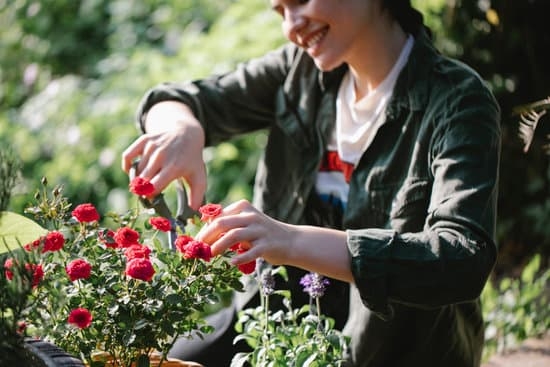When it comes to creating a tranquil and secluded outdoor space, screening ideas for front gardens play a crucial role. Not only do they provide privacy from passersby and neighbors, but they also enhance the aesthetic appeal of your property. Front garden screening offers a sense of enclosure and intimacy, making your outdoor area feel like a peaceful retreat right at your doorstep.
Choosing the right plants for front garden screening is essential in achieving the desired effect. From evergreen shrubs that maintain their foliage year-round to tall trees that provide a natural barrier, there are various options to suit different preferences and climates. Climbers can also be used to cover walls or fences effectively, adding vertical interest and texture to your front garden.
In addition to discussing the types of plants suitable for front garden screening, this article will also delve into tips on selecting the right plants based on factors such as climate, sunlight exposure, and desired height of the screen. By understanding these considerations, you can create a lush and inviting green space that not only offers privacy but also elevates the overall look of your home’s exterior.
Types of Plants for Front Garden Screening
When considering screening ideas for front gardens, one of the key elements to think about is the type of plants that can be used to create an effective screen. Evergreen shrubs, trees, and climbers are popular choices due to their ability to provide year-round coverage and privacy.
Evergreen shrubs such as boxwood or laurel can be planted closely together to form a dense barrier, while trees like holly or cypress can grow tall and act as a living fence. Climbers like ivy or jasmine can be trained to grow up trellises or walls, adding vertical interest to the garden.
In selecting the right plants for front garden screening, it is important to consider factors such as climate, sunlight exposure, and desired height of the screen. Plants that thrive in your specific climatic conditions will have a better chance of establishing themselves and flourishing.
Additionally, determining how much sunlight the area receives throughout the day will help you choose plants that are suitable for the light levels. Lastly, deciding on the height of the screen you desire will dictate whether you opt for low-lying shrubs or taller trees.
Different types of plants offer unique characteristics that can contribute to the overall look and feel of your front garden screening. For example, evergreen shrubs may provide a formal and structured appearance, while climbers can introduce a more whimsical and natural feel. Mixing various plant types within your screen can create a dynamic and visually appealing landscape. Experimenting with different combinations of plants can result in a beautiful and functional front garden screen that suits your personal taste and style.
| Plant Type | Main Characteristics |
|---|---|
| Evergreen Shrubs | Year-round coverage and privacy |
| Trees | Tall living fences for privacy |
| Climbers | Adds vertical interest by growing on trellises or walls |
Choosing the Right Plants
When it comes to creating a screen in your front garden, choosing the right plants is essential. The selection of plants should be based on several factors such as climate, sunlight exposure, and desired height of the screen. In order to achieve an effective and visually appealing screening solution for your front garden, it is important to carefully consider these factors before making your plant choices.
Climate Considerations
The climate of your region plays a significant role in determining which plants will thrive in your front garden. It is important to select plants that are well-suited to the local climate in order to ensure their success. Research the hardiness zones for your area and choose plants that are recommended for those specific zones. Additionally, consider factors such as average rainfall and temperature fluctuations when selecting plants for your front garden screening.
Sunlight Exposure
Another crucial factor to consider when choosing plants for front garden screening is sunlight exposure. Take note of how much sunlight the area receives throughout the day and select plants that are suitable for those light conditions.
Some plants require full sun to thrive, while others prefer partial shade or full shade. Be sure to match the sunlight requirements of the selected plants with the amount of light available in your front garden to ensure they will grow and flourish accordingly.
Desired Height of the Screen
The desired height of the screen in your front garden will also impact your plant selection. Consider how tall you want the screen to be in order to achieve the level of privacy or visual barrier you desire.
Choose plants that have a growth habit suited to reaching the desired height within a reasonable timeframe. Keep in mind that some plants may require regular pruning or training to maintain their height and shape, so factor this into your decision-making process when selecting plants for front garden screening purposes.
Creative Screening Ideas
Front garden screening serves not only a functional purpose of providing privacy and defining boundaries but also adds an aesthetic appeal to the outdoor space. When considering screening ideas for front gardens, it is essential to think creatively and outside the box. Here are some creative and unique ideas to enhance your front garden:
- Utilize Trellises: Trellises are versatile structures that can support climbing plants like ivy, roses, or jasmine. They not only create a beautiful green wall but also add dimension and interest to the garden.
- Incorporate Ornamental Grasses: Ornamental grasses are excellent choices for creating a natural screen in front gardens. They add texture, movement, and color to the landscape while requiring minimal maintenance. Some popular varieties include fountain grass, pampas grass, or maiden grass.
- Integrate Decorative Screens: Decorative screens offer a modern and stylish way to screen off areas in your front garden. These screens come in various designs, materials, and sizes, allowing you to customize them according to your taste and requirements.
By incorporating these creative screening ideas into your front garden design, you can transform your outdoor space into a private oasis that reflects your personality and style.
Remember that when implementing these ideas, it is crucial to consider factors such as sunlight exposure, wind conditions, and existing landscaping elements to ensure the success of your front garden screening project. Additionally, regular maintenance such as pruning, watering, and fertilizing will help keep your plants healthy and thriving for years to come. Experiment with different combinations of plants, structures, and materials to create a unique and inviting front garden that enhances the overall look of your home façade.
DIY Screening Projects
DIY projects can be a rewarding and cost-effective way to create screening in front gardens. One popular option is building a living fence using plants like bamboo, willow, or even fast-growing hedges. These living fences not only provide privacy but also add beauty and greenery to the front garden.
Additionally, vertical gardens are becoming increasingly popular as a creative screening idea. By using wall-mounted planters or trellises, homeowners can grow a variety of plants vertically, saving space and creating a stunning visual impact.
When embarking on a DIY screening project for the front garden, it’s essential to consider factors such as sunlight exposure, soil quality, and watering needs of the chosen plants. For example, if the front garden receives limited sunlight, selecting shade-tolerant plants for the living fence or vertical garden is crucial for their survival and growth. Proper research and planning upfront can help ensure the success of the screening project in the long run.
In addition to providing privacy and enhancing curb appeal, DIY screening projects in front gardens offer an opportunity for personalization and creativity. Homeowners can choose from a wide range of materials for building structures like trellises or decorative screens, allowing them to tailor the design to their unique style and preferences. With careful consideration of plant selection and construction techniques, DIY screening projects can transform any front garden into a private oasis that truly reflects the homeowner’s personality.
| DIY Screening Projects | Offering DIY Projects for Creating Screens in Front Gardens |
|---|---|
| Building Living Fence | Using plants like bamboo or hedges to create privacy |
| Vertical Gardens | Growing plants vertically with wall-mounted planters |
Maintenance Tips
Having a front garden screen adds both privacy and beauty to your outdoor space. However, in order to ensure that your screening ideas for front gardens continue to thrive and look their best, proper maintenance is key. Here are some essential tips to help you maintain and care for your front garden screens effectively.
Regular Pruning and Trimming
One of the most important maintenance tasks for front garden screens is regular pruning and trimming. This helps to keep the plants healthy, promotes growth, and maintains the desired shape and height of the screen. Make sure to trim any dead or damaged branches, as well as remove any overgrowth that may be obstructing the view or sunlight.
Watering and Feeding
Proper watering is crucial for the health of your front garden screens. Make sure to water the plants regularly, especially during dry spells or hot weather. Additionally, consider feeding your plants with suitable fertilizers to provide them with essential nutrients for optimal growth. Be mindful of each plant’s specific water and feeding requirements based on their type and location.
Weed Control
To keep your front garden screens looking neat and tidy, it is important to control weeds that may compete with your chosen screening plants for resources. Regular weeding ensures that unwanted plants do not take over the space or hinder the growth of your screen. Consider using mulch or other weed control methods to keep weed growth at bay.
By following these maintenance tips, you can ensure that your front garden screens remain healthy, vibrant, and fulfilling their purpose of providing privacy and enhancing the aesthetics of your outdoor space. Proper care will not only preserve the beauty of your screening ideas but also prolong the lifespan of your plants for years to come.
Case Studies
Front garden screening plays a vital role in providing privacy, security, and enhancing the aesthetics of outdoor spaces. When it comes to choosing the right plants for front garden screening, there are various options to consider. Here are some types of plants that can be utilized for creating an effective screen in front gardens:
- Evergreen Shrubs: These are a popular choice for front garden screening as they provide year-round coverage and require minimal maintenance.
- Trees: Tall trees like cypress or arborvitae can create a natural barrier for privacy and noise reduction.
- Climbers: Plants like ivy or jasmine can be trained to grow on trellises or fences, providing a vertical screen for added privacy.
When selecting plants for front garden screening, it is crucial to consider factors such as climate, sunlight exposure, and desired height of the screen. For example, plants that thrive in full sun may not do well in shady areas. It is also essential to choose plants that are suited to your specific climate to ensure their health and longevity.
Creative screening ideas can add a unique touch to front gardens. Consider incorporating elements like trellises, ornamental grasses, or decorative screens to enhance the overall look of your outdoor space. These features not only provide privacy but also serve as beautiful focal points in the garden. By thinking outside the box and exploring different design options, you can create a stunning front garden that reflects your personal style.
Expert Advice
In conclusion, when it comes to screening ideas for front gardens, the possibilities are endless. Whether you are looking to create a private oasis, add visual interest to your outdoor space, or simply enhance the overall aesthetics of your front yard, there are numerous options to choose from.
By selecting the right plants based on climate and sunlight exposure, considering creative alternatives like trellises or decorative screens, and even exploring DIY projects such as living fences or vertical gardens, you can transform your front garden into a beautiful and functional space.
Furthermore, seeking expert advice from landscaping professionals or garden designers can be incredibly beneficial in planning and executing your front garden screening project. These experts can provide valuable insights on plant selection, design techniques, maintenance tips, and more. With their guidance, you can ensure that your front garden screen not only meets your practical needs for privacy and beauty but also thrives and flourishes over time.
Overall, screening ideas for front gardens offer a wonderful opportunity to express your creativity and enhance the appeal of your outdoor space. Whether you opt for traditional evergreen shrubs or think outside the box with unique solutions like ornamental grasses or vertical gardens, there is something for every taste and style.
With careful planning, proper maintenance, and expert advice, you can create a stunning front garden screen that will not only serve its purpose but also become a focal point of your home’s exterior.
Frequently Asked Questions
How Do I Add Privacy to My Front Yard?
Adding privacy to your front yard can be achieved through various methods. Planting tall shrubs or trees along the perimeter can create a natural barrier. Installing a fence or trellis with climbing plants can also provide privacy while adding visual interest to the space.
How Do You Screen Your Front Yard?
Screening your front yard involves strategically placing vegetation, structures, or decorative elements to block views from the street or neighbors. This can include using planters with tall plants, installing lattice panels, or incorporating outdoor curtains for a temporary solution.
How Can I Make My Front Yard Garden Look Nice?
To make your front yard garden look nice, consider creating focal points with colorful flowers, sculptures, or water features. Maintaining a tidy lawn by mowing regularly and edging along walkways can enhance the overall aesthetic. Adding lighting for nighttime visibility can also make your garden more inviting and attractive to visitors.

Welcome to my gardening blog! I am passionate about plants and enjoy sharing my knowledge and experiences with others. In this blog, I will write about everything related to gardening, from tips on how to get started to updates on my own garden projects.





